
TEHRAN, June 7 (Xinhua) -- Iranian presidential candidates are divided over the country's foreign policy in their third and final televised live debate on Friday.
Saeed Jalili, a hardline principlist candidate, said that in international relations, the interests of the country will regulate the foreign policy of the Islamic republic.
"If our interests are at odds with (the demands) of some countries, we should defend our rights" by resistance, said Jalili, Iran's incumbent chief nuclear negotiator, who alluded to the conflicts between Iran and some Western countries over Iran's nuclear issue.
"One of our discussions is that we do not accept the hegemonic power in the world and are in challenge with it," Jalili said, adding that "We are in challenge with a system which intends to forcefully rule the world."
However, former Iranian Foreign Minister Ali-Akbar Velayati criticized Jalili's diplomacy over the country's nuclear issue in the past years, saying that it is "flawed."
"This is not diplomacy to sit face-to-face with the other side and to recite the same words" or "this is not diplomacy to read a statement before other countries," said Velayati.
He argued that the Islamic republic and the world powers could have reached an agreement if the Iranian negotiating team has responded positively to the proposals of the P5+1 group (five permanent members of the UN Security Council plus Germany) in the last round of nuclear talks in Almaty of Kazakhstan.
"The art of diplomacy is to preserve the country's nuclear right and, at the same time, we diminish sanctions," he noted.
Velayati said that before Iran's nuclear dossier was sent to the UN Security Council, he was invited to France at the invitation of then French President Nicolas Sarkozy to talk over the country's nuclear issue and they agreed that Iran should reduce the number of centrifuges but at the same time could keep nuclear enrichment activity.
However, Iran's Foreign Ministry under President Mahmoud Ahmadinejad's presidency told the French embassy that Velayati was not the government's representative to hold talks with the French president.
Therefore the negotiations to solve the country's nuclear issue were stopped and Iran's nuclear dossier was later submitted to the UN Security Council by the UN nuclear watchdog, which was followed by the successive sanctions and further pressures.
Velayati emphasized that if he is elected as the president in the June 14 election, he will establish a "constructive interaction with the states of the world" which will help his country tackle a number of domestic and international problems.
Meanwhile, Hassan Rouhani, a moderate candidate, asserted that the incumbent "government has not acted successfully" as far as the nuclear issue is concerned.
Rouhani said that as the former chief nuclear negotiator, he was able to head off threats of attacks against his country and to prevent Iran's nuclear dossier from being sent to the UN Security Council through "wisdom" and rational nuclear policy.
Rouhani made the remarks, alluding to a voluntary and temporary suspension of its uranium enrichment program and the voluntary implementation of the Additional Protocol in 2004, after pressure from Britain, France and Germany that were acting on behalf of the European Union.
Further critical of the policies of Iran's current nuclear negotiating team, which over time have led to the economic hardship in the country, Rouhani explained that the performance of centrifuges will be effective if the economy of the country is not hurt, when the factories' production is not affected and if there is no pressure on the life of the people.
He said that interaction with the world countries comprises the main part of his foreign policy.
Besides, Tehran's Mayor and also another principlist candidate, Mohammad-Bagher Qalibaf, said that so far, diplomacy in Iran's foreign policy has not led to proper results.
Qalibaf said he will take into account changes in the world diplomacy while preserving the interests and identity of the nation.
He will follow the active diplomacy with the regional and world countries, he added.
Another principlist candidate, Gholam-Ali Haddad-Adel, defended the current status of Iran's relations with the Western countries, saying that the problem between the Islamic republic and the United States is not the country's nuclear program; the trouble is "the United States cannot stand political and cultural independence of Iran" after the 1979 Islamic revolution.
About existing issues, including the sanctions, Iran should negotiate with the United States, "preserving its dignity and power," Haddad-Adel said, adding that the United States will only enter the talks with Iran when it learns that "the Iranians will not raise their hands as the sign of surrender."
In order for Iran to preserve its dignity in the probable talks with the United States, the country should enhance its economic strength, Haddad-Adel, an Iranian lawmaker, added.
"There is not such a thing as Iran's nuclear issue, but Iran is accused of building (atomic) bomb by the enemies," he said, arguing that "The enemies are afraid of Iran's increasing power in the world."
Also, Mohsen Rezaei, an independent candidate and Iran's ex- military commander, said that in his foreign policy he will follow "the strategy of scissors" signifying that "by enhancing the country's capabilities, we will show that the sanctions have not been effective" and "we will harness the most powerful diplomacy to remove sanctions."
The West's strategy aims to prolong solving Iran's nuclear issue, "but we will stop the passage of time" and "we will solve nuclear issue," Rezaei said.
According to Iran's Interior Ministry, nearly 50.5 million eligible voters will cast ballots in the election contended by eight candidates -- most of whom are conservatives.
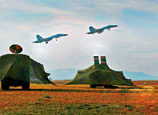
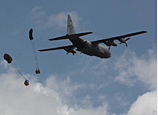
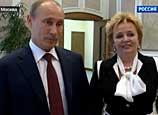
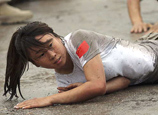

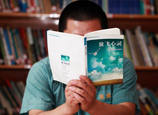
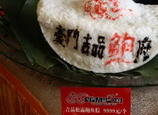
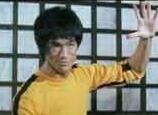








 Bodyguard trainees experience 'Hell Week' in Beijing
Bodyguard trainees experience 'Hell Week' in Beijing


![]()
